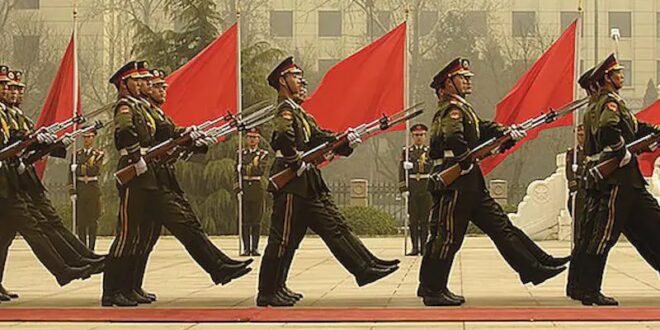Falling birthrates in East Asia are causing concerns over whether the region’s military forces will be able to maintain their troop levels in future. As a result, China, Japan, and South Korea are changing their recruitment standards even though they have invested heavily in programmes to boost birthrates. However, some experts believe that advancements in technology will help offset the impact of declining populations.
East Asia has the world’s lowest birthrates, with China at 1.0, Japan at 1.2, India at 2.12 and South Korea at 0.72 children per woman. Japan is already a ‘super-aged’ society and China and South Korea are quickly catching up.
South Korea Situation
South Korea requires all able-bodied men to serve 18 months in the military and has around 500,000 active-duty soldiers. However, experts are concerned that the country’s very low birthrate—the lowest in the world—could create problems for maintaining this force in future.
Newsweek.com quotes a December CNN report as saying that, according to Choi Byung-ook, a national security professor at Sangmyung University, the future has already been determined and that cutting down on the military’s size is a foregone conclusion. The government under former South Korean President, Moon Jae-in, had shortened the mandatory military service to 18 months, but, of late, speculations have been doing the rounds that women may, possibly, required to serve, too.
The Situation in China
Su Tzu-yun, a researcher at Taiwan’s top defence think tank, the Institute for National Defense and Security Research, suggested that the military service period might be further curtailed to help the young generation to finish their service period sooner and start working earlier. Newsweek quotes Su as stating that the effects of an ageing population show up in different ways in each of these three countries.
China’s biggest issue would be an economic crisis made worse by trade wars and the loss of the demographic dividend, he said. Meanwhile, South Korea and Japan would face challenges with staffing their armed forces. Su mentioned that this issue would mainly affect regular the military forces. Special forces, being smaller and having a strong sense of professionalism, would not be as severely impacted by a manpower shortage.
China, which has the world’s largest military, has also eased its recruitment standards, such as height, weight and vision requirements, to keep its numbers up.
The Situation in Japan
According to Su, Japan’s military depends on volunteers, which makes the situation in that country even more difficult. The Japan Times reported in November that the number of people applying to join Japan’s Self Defense Force (SDF) had dropped by about 30% over the past decade.
In 2022, fewer than 4,000 people enlisted, which was more than a 50% shortfall in planned recruitment. Even though the SDF increased the maximum age for new recruits from 26 to 32 in 2018, it has still had difficulty increasing its numbers.
In an interview with the Center for Strategic and International Studies, Andrew Oros, a professor of Political Science and International Studies at Washington College, explained that China’s economy was not as advanced as Japan’s or South Korea’s. As a result, when people leave their jobs to join the military, they are often less educated and less healthy. These workers are then replaced by individuals who are better educated and healthier, Newsweek reports.
As a fallout of this, significant economic growth stemming from this could be expected. Even with a smaller workforce, higher economic output is possible, allowing them to afford the advanced weapons that China plans for its arsenal, according to Oros. He noted that despite demographic issues, China had been working for many years to develop a more advanced and capable military. He believes that China is focusing on advanced technology not because of the demographic factor, but because their plan is to have a military at par with that of the United States.
Tokyo and Seoul are dealing with a rapidly shrinking number of people eligible for military service. This is pushing them to invest more in technologies that save labour, according to Oros, who predicts that demographic trends will impact military security until 2050, but not after that.
Oros highlighted the evolving nature of warfare, with an increase in grey zone and cyber operations. He warned analysts not to fall into the trap of “demographic determinism”, pointing out the potential benefits of labour-saving technology.
 Eurasia Press & News
Eurasia Press & News




